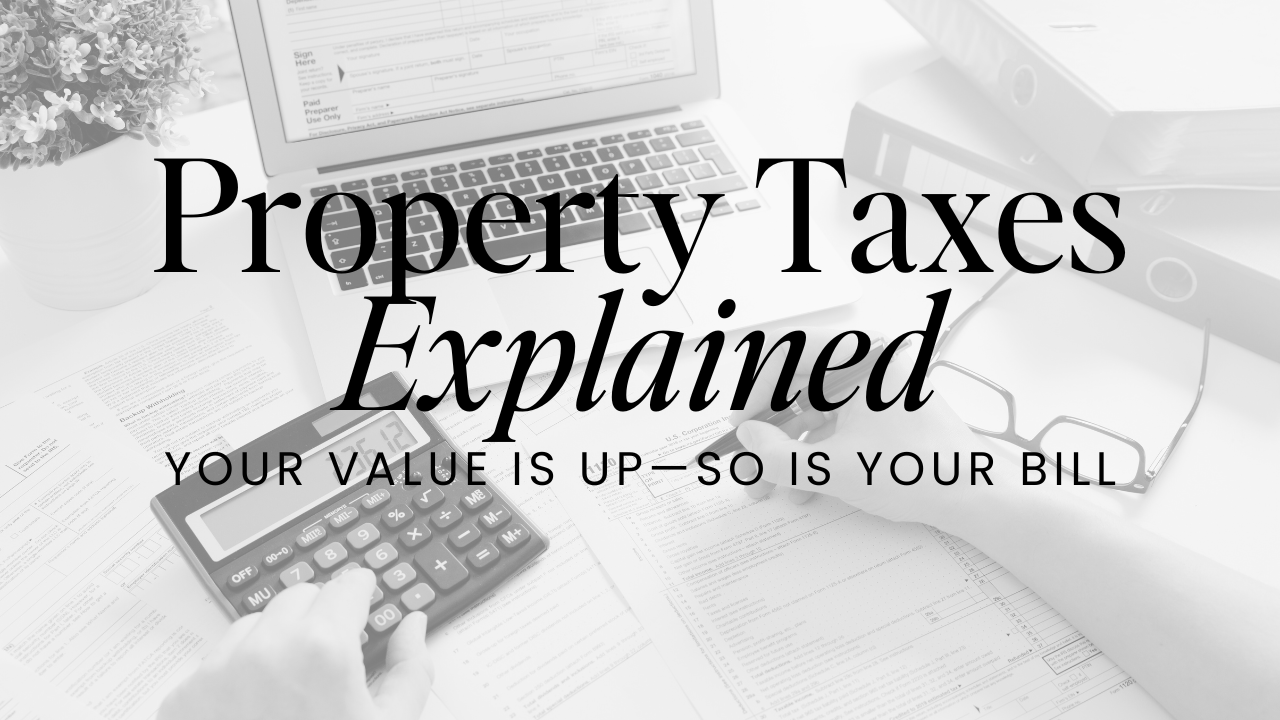Why Your Property Tax Bill Feels Higher in 2025—Even if the Rate Dropped
May 09, 2025
A Tarrant County homeowner’s guide to what’s really going on—and what might help soon.
If you just got your property appraisal notice and your first thought was “How in the world…?”—you’re not alone. Across North Texas, homeowners are seeing noticeable increases in their tax bills, even if the actual tax rate appears flat or has dipped slightly. Let’s break down what’s happening, why it matters, and what relief may (finally) be on the horizon.
Texas: Where Property Taxes Do the Heavy Lifting
Texas doesn’t have a state income tax—and while that’s great in theory, it shifts a lot of the funding burden for schools, infrastructure, and public services to property taxes. The result? Texas ranks 7th in the nation for property tax burden, with DFW homeowners often hit the hardest.
Tarrant County: A Local Snapshot
In Tarrant County, the average home value has skyrocketed over the last five years. In 2019, a typical home was valued around $220,000. Fast forward to 2024, and that same home might be appraised closer to $350,000. During that same window, the average tax rate dropped only slightly—from about 2.4% to 2.2%.
Here’s the kicker: even though your tax rate went down, the value of your home likely increased by 50% or more. And when you multiply that higher value by even a slightly lower rate, your total tax bill still ends up higher.
How We Compare to Other DFW Counties
Tarrant isn’t the only one with this issue, but it’s definitely among the most expensive. Here's how some counties in the Metroplex stack up:
-
Tarrant County – Avg. 2.2–2.4%
-
Denton County – Avg. 2.1–2.3%
-
Collin County – Avg. 2.0–2.2%
-
Dallas County – Avg. 2.2–2.5%
Even small differences in these rates can equal thousands of dollars a year depending on your home’s value and what school district you’re in. Two similar homes just 10 miles apart could have drastically different tax bills.
The Appraisal Cap Doesn’t Always Help
Texas law limits how much your assessed home value can increase if you have a homestead exemption—capped at 10% annually. But if you're a new homeowner or just filed for homestead recently, you're not protected by that cap yet. Plus, some school and utility district rates remain untouched by this limitation.
What’s Being Done to Help
The good news? Relief efforts are finally gaining traction.
In 2023, Texas lawmakers passed an $18 billion property tax relief package, which included:
-
Increased Homestead Exemption: Raised from $40,000 to $100,000 for school district taxes.
-
School Tax Rate Compression: Forced ISDs to lower their portion of the tax rate.
-
Option for Local Relief: Counties can now offer more generous homestead or senior exemptions.
In Tarrant County, leaders are exploring further exemptions and tax rate adjustments. And if you're 65+ or disabled, you’re eligible for additional caps and freezes that could significantly stabilize your future bills.
Bottom Line: Your Value Is Up—So Is Your Bill
Even if your rate is “lower,” if your home’s value shot up, so did your taxes. Until appraisal methods or funding models change in a big way, we’ll keep seeing these painful increases unless voters or lawmakers step in further.
Stay Connected!
Like this and want to hear more? Awesome. Let's stay in touch.
We hate SPAM. We will never sell your information, for any reason.

